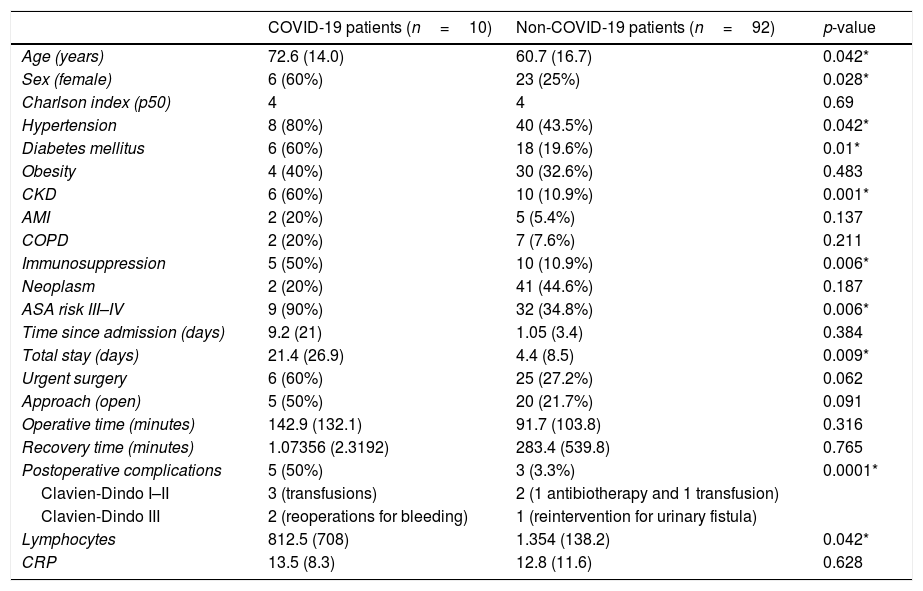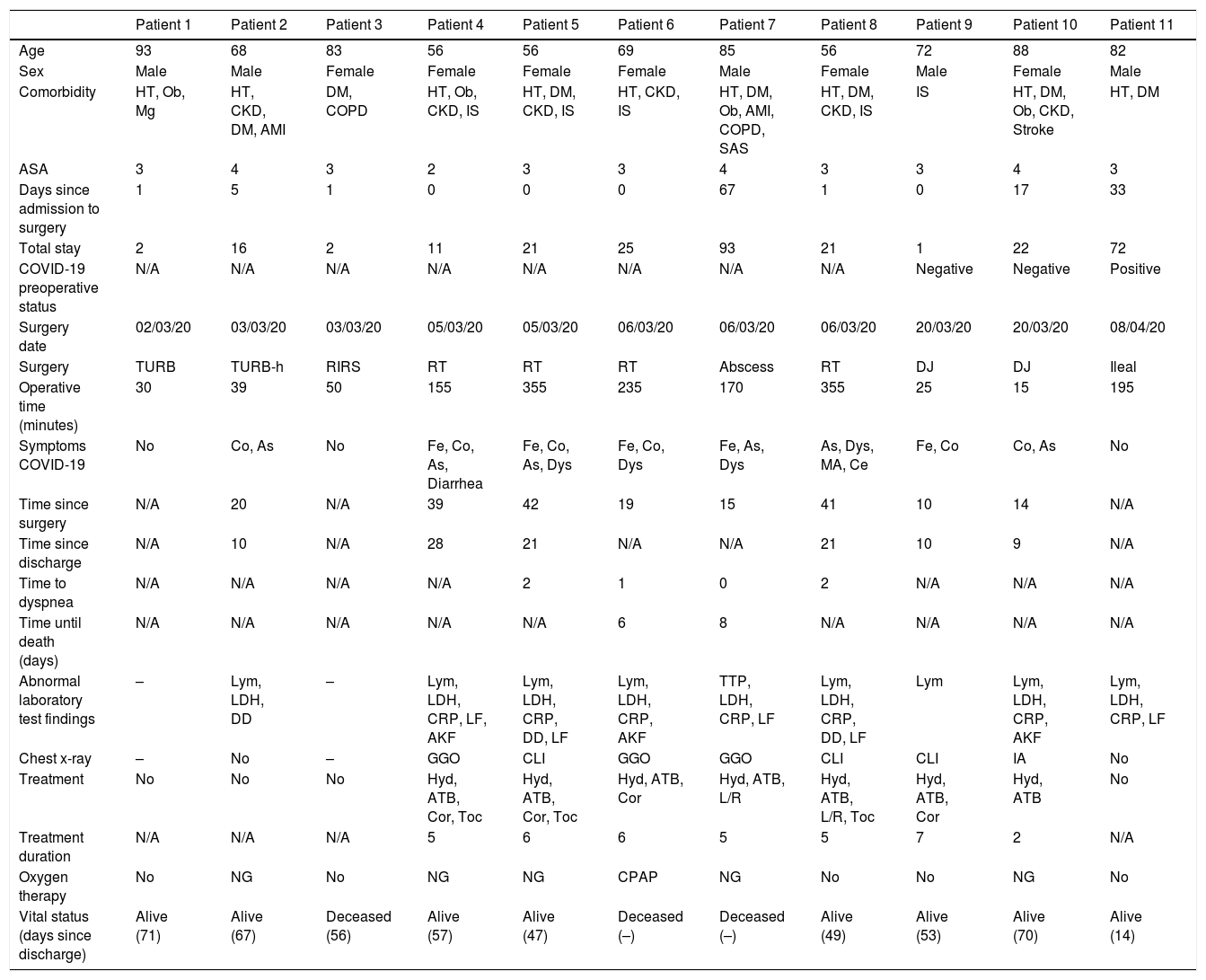The SARS-CoV-2 pandemic has changed the urological practice around the world. Our objective is to describe the outcomes presented by patients undergoing surgery in the urology department of a tertiary hospital, across the pandemic phases.
MethodsObservational, cohort study including all patients undergoing surgery from March 1 to May 14. According to the hospital organization, we identified three periods: there were no changes during the first two weeks (1st period), the following seven weeks, when only urgent interventions were carried out after performance of nasopharyngeal swab test (2nd period), and finally, elective surgery was resumed on May 4, after the implementation of a multidisciplinary screening protocol (3rd period). Demographic, baseline, surgical and perioperative variables, as well as postoperative outcomes, were obtained in a retrospective (periods 1 and 2) and prospective (period 3) manner. Telephone follow-up was initiated at least 3 weeks after hospital discharge.
Results103 urological surgeries were performed, and 11 patients were diagnosed with COVID-19, 8 of them within the 1st period. The diagnosis was already known in 1 patient, while the other 10 developed the disease in an average of 25 days after the intervention and 16.6 days after discharge. Of seven transplant patients, four got the infection. Three deaths were recorded due to the disease: a 69-year-old woman transplanted and two men over 80 with comorbidities and high anesthetic risk who underwent drainage of retroperitoneal abscess and retrograde intrarenal surgery, respectively.
ConclusionsSARS-CoV-2 infection mainly affected renal transplant recipients or elderly patients with high anesthetic risk, during the first 2 weeks of the pandemic. After implementing preoperative PCR tests and a comprehensive screening protocol, cases were substantially reduced, and safe surgical procedures were achieved.
La pandemia por SARS-CoV-2 ha cambiado la práctica urológica a nivel mundial. Nuestro objetivo es describir los resultados en salud observados en los pacientes intervenidos en el Servicio de Urología de un hospital terciario, a lo largo de diferentes fases epidemiológicas.
MétodosEstudio de cohortes observacional que incluye todos los pacientes intervenidos entre el 1 de marzo y el 14 de mayo. Según la organización hospitalaria, distinguimos 3 periodos: durante las primeras 2 semanas no hubo cambios (1.er periodo), en las 7 semanas siguientes solo se realizaron intervenciones urgentes previa extracción de exudado nasofaríngeo (2.o periodo), y tras el 4 de mayo se reanudó la cirugía electiva aplicando un protocolo de cribado multidisciplinar (3.er periodo).
Las variables demográficas y basales, las quirúrgicas y perioperatorias, así como los resultados postoperatorios, se obtuvieron de forma retrospectiva (periodos 1 y 2) y prospectiva (periodo 3). El seguimiento telefónico se realizó al menos 3 semanas tras el alta hospitalaria.
ResultadosSe realizaron 103 cirugías urológicas y fueron diagnosticados de COVID-19 11 pacientes, 8 de ellos en el 1.er periodo. El diagnóstico era conocido en un paciente, mientras que los otros 10 desarrollaron la enfermedad en una media de 25 días tras la intervención y 16,6 días tras el alta. Cuatro de 7 pacientes trasplantados resultaron afectados. Se registraron 3 muertes por la enfermedad: una mujer de 69 años trasplantada y 2 varones mayores de 80 años con comorbilidades y alto riesgo anestésico a los que se realizó drenaje de absceso retroperitoneal y cirugía retrógrada intrarrenal, respectivamente.
ConclusionesLa infección por SARS-CoV-2 afectó principalmente a trasplantados renales o pacientes añosos con alto riesgo anestésico, durante las 2 primeras semanas de la pandemia. Tras implantar la PCR preoperatoria y un protocolo completo de cribado, los casos se redujeron de manera sustancial y se pudo operar con seguridad.









